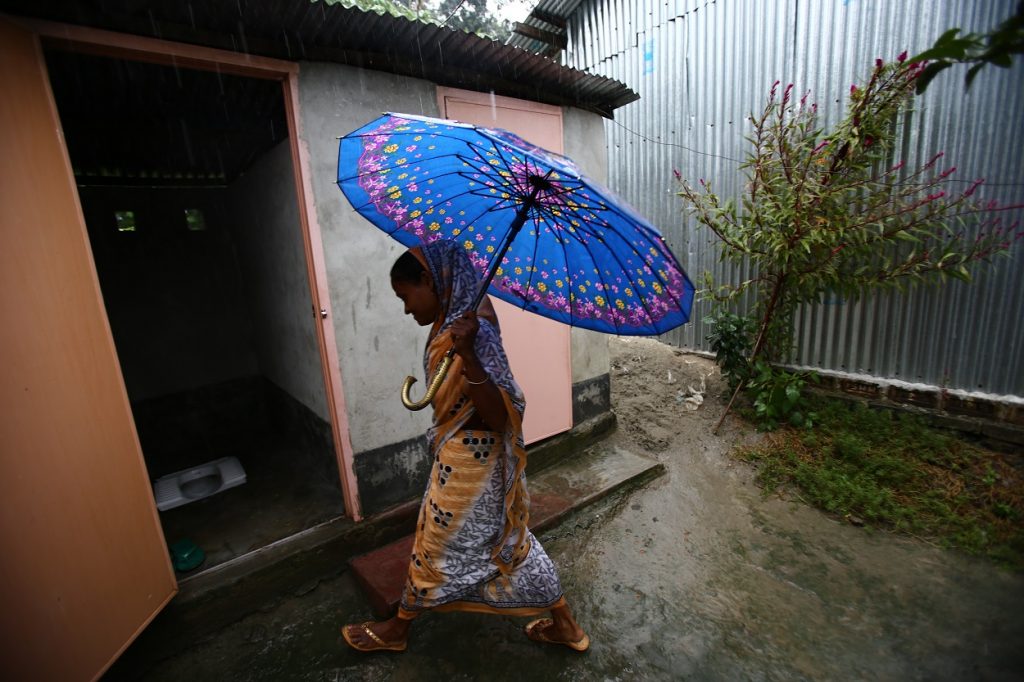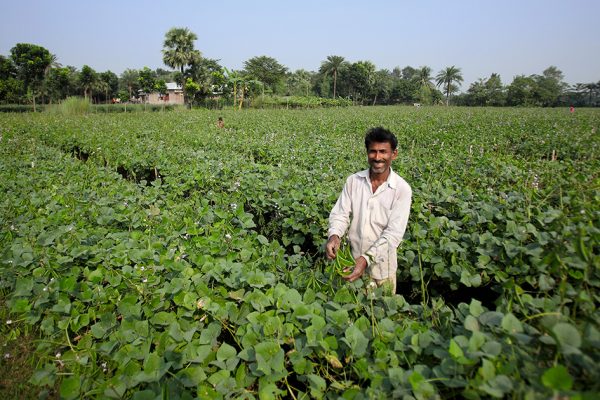From health to wealth: Sanitation standards shifting in rural Bangladesh
Reading Time: 3 minutes
Bangladesh has largely succeeded in providing access to basic sanitation. Using latrines in rural communities is now no longer seen as a luxury reserved for upper-income households, but a necessity at all levels of society.
There is more to the story of “sanitation” in a country like Bangladesh than meets the eye. Often viewed by most as merely a basic component of social development, the provision of proper sanitation has shifted with time.
Most people in Bangladesh now have access to a toilet, although 40% of the population still use shared, rudimentary sanitation facilities. The country has made significant progress in reducing open defecation from 34% in 1990 to 3% in 2017. Those who continue to practice open defecation vastly belong to the most marginalised communities.
The issue of adequate sanitation facilities in urban slums and ultra-poor households has not yet been resolved. However, the need for sanitation has changed in many rural communities from simply being a health concern to a wealth testimonial. Social norms around open defecation and using latrines have positively changed, due to continued efforts of the government, NGOs and the private sector.

We started providing affordable finance for households to replace or upgrade basic latrines, or move out of shared arrangements. ©BRAC/Pronob Ghosh
Bangladesh has largely succeeded in providing access to basic sanitation. Using latrines in rural communities is now no longer seen as a luxury reserved for upper-income households, but a necessity at all levels of society.
BRAC constantly emphasises the heterogeneity among people living in poverty and their distinct needs when it comes to programme design. For decades, our aim was to establish hygienic sanitation facilities in rural communities through raising awareness. With the advancement in rural development, there has been a significant transition in the communities we serve. We adjusted our approach, observing this shift in perception- from it being an utmost need, to a demand of better facilities. We started providing affordable finance for households to replace or upgrade basic latrines, or move out of shared arrangements.
In 2015, we launched a unique service solely for households looking to improve their sanitation facilities by allowing community members to access credit directly from BRAC. We partner with local sanitation service providers to make this more accessible. Local latrine vendors refer customers to access our credit services as an alternative to paying upfront. For additional convenience, borrowers are able to repay instalments via bKash, BRAC Bank’s mobile money platform.
The ‘sanitation loan’ has been well received so far. Dipti Rani, from Saidpur of northern Bangladesh, heard about the it from a shasthya shebika (BRAC’s community health worker). She immediately took out a loan of USD 130 to upgrade her latrine. When asked why, she said the news of the loan could not have arrived at a more opportune time. Her son recently got married and her daughter-in-law has now come to live under her roof. It was a matter of social standing to have a decent latrine for her daughter-in-law. She wanted her to have privacy, and feel comfortable in her new home.
For Yusuf Ali, from Barisal of southern Bangladesh, it was a matter of individual pride. He lives with two of his sons who run a small shop. They shared a latrine with a few of his neighbours. When he heard about his neighbour taking finance from BRAC solely for sanitation purposes, he leaped at the opportunity.
“It was embarrassing having to go to someone else’s home to use their latrine,” says Ali, “I would have to wait in a queue for my turn. There was no privacy. The latrine itself was broken and dirty.”
Yusuf Ali borrowed USD 120 and his sons added in an additional USD 100 from their income to build a proper latrine with a concrete surrounding.
Initiated as a pilot product in 2017, our microfinance programme is now planning to expand these services across Bangladesh. More than 14,500 households accessed sanitation loans till June 2018, with a total loan disbursement of USD 1.2 million.
The shift from viewing sanitation as a matter of health to wealth reflects the remarkable progress that Bangladesh has achieved – even in communities that once did not acknowledge it. Nonetheless, we can only say that BRAC has achieved its goal when all segments of the population have access to decent sanitation facilities.
Oishi Nawal is an assistant manager for communications and knowledge management of BRAC’s microfinance programme.





